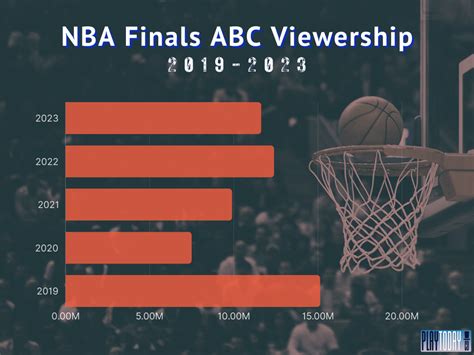
Justin Fields, the former Chicago Bears quarterback now with the Pittsburgh Steelers, is reportedly exhibiting concerning performance issues during Steelers’ practice, raising questions about his readiness to serve as a reliable backup to starting quarterback Russell Wilson.
PITTSBURGH – Justin Fields’ transition to the Pittsburgh Steelers is not progressing as smoothly as hoped, with reports surfacing of “alarming” struggles during practice, creating worries about the quarterback’s preparedness for the upcoming season. Once touted as a potential franchise cornerstone, Fields’ difficulties in grasping the Steelers’ offensive scheme and executing plays consistently have raised concerns among coaches and analysts. While Russell Wilson has been solidifying his position as the team’s starter, Fields’ inability to quickly adapt to his new environment casts doubt on his immediate value to the team and future prospects in Pittsburgh. The pressure is mounting on Fields to demonstrate significant improvement in the remaining offseason practices to secure his role and alleviate the team’s worries about their quarterback depth.
According to sources within the Steelers’ training facility, Fields has struggled with accuracy, decision-making, and overall command of the Steelers’ offense. “There’s been some struggles. Some alarming struggles,” reported a source close to the team. These struggles have been particularly noticeable in team drills and scrimmage situations where Fields has faced pressure and complex defensive schemes. These issues compound the challenges the Steelers face in solidifying their quarterback situation behind Wilson.
Fields’ arrival in Pittsburgh earlier this year was met with cautious optimism. After an up-and-down tenure with the Chicago Bears, where he showcased moments of brilliance mixed with inconsistency, the Steelers acquired him for a conditional late-round draft pick. The move was seen as a low-risk, high-reward opportunity to add depth and potential to the quarterback position. Steelers’ head coach Mike Tomlin expressed confidence in Fields’ potential, citing his athleticism and arm talent as valuable assets. However, Tomlin also emphasized the need for Fields to refine his fundamentals and improve his decision-making to succeed in the Steelers’ system.
The Steelers’ offensive coordinator, Arthur Smith, who was brought in to revamp the team’s offensive approach, has been working closely with Fields to accelerate his learning curve. Smith’s offensive scheme is known for its complexity and demands a high level of understanding from the quarterback. It requires quick reads, precise timing, and the ability to make adjustments at the line of scrimmage. Fields’ struggles to master these aspects of the offense have been a significant concern.
One of the primary issues has been Fields’ accuracy. During practice sessions, he has reportedly missed targets, thrown interceptions, and struggled to consistently deliver the ball to his receivers. These accuracy problems are compounded by decision-making errors, where Fields has been observed making poor reads and forcing throws into coverage. These mistakes have resulted in turnovers and stalled drives, highlighting the need for significant improvement in his ability to process information and make sound judgments under pressure.
Another challenge for Fields has been adapting to the Steelers’ playbook and terminology. Every NFL team has its unique offensive language, and it takes time for a quarterback to fully grasp the nuances of a new system. Fields’ difficulties in internalizing the Steelers’ playbook have slowed his progress and hindered his ability to execute plays effectively. He has been seen hesitating on reads, struggling to identify defensive coverages, and failing to make the necessary adjustments at the line of scrimmage.
The Steelers’ coaching staff is aware of these challenges and is working diligently to provide Fields with the support and guidance he needs to improve. They have implemented a comprehensive training program that includes film study, classroom sessions, and extensive on-field reps. The goal is to help Fields develop a deeper understanding of the Steelers’ offense and improve his overall quarterback skills.
However, time is of the essence. With the start of the regular season just a few months away, the Steelers need Fields to make significant strides in his development. The team’s success hinges on having a reliable backup quarterback who can step in and perform at a high level if Wilson were to get injured or struggle. If Fields is unable to demonstrate sufficient progress, the Steelers may need to explore other options to bolster their quarterback depth. This could include signing a veteran free agent or trading for another quarterback before the start of the season.
The pressure on Fields is further intensified by the presence of Russell Wilson, who has quickly established himself as the team’s starting quarterback. Wilson, a Super Bowl champion and nine-time Pro Bowler, brings a wealth of experience and leadership to the Steelers’ offense. His arrival has raised the team’s expectations and increased the urgency for success.
Wilson has been performing well in practice, displaying accuracy, arm strength, and a strong command of the offense. He has been working closely with the Steelers’ receivers and tight ends to develop chemistry and timing. Wilson’s success has solidified his position as the starter and put additional pressure on Fields to prove his worth as a backup.
The situation also invites comparison to Fields’ time with the Chicago Bears, where he was initially hailed as the team’s savior but ultimately failed to live up to expectations. Despite showcasing his athleticism and rushing ability, Fields struggled with consistency as a passer and often made costly mistakes. The Bears eventually traded him to the Steelers after deciding to draft quarterback Caleb Williams with the first overall pick in the 2024 NFL Draft.
The Steelers are hoping that a change of scenery and a new coaching staff will help Fields unlock his full potential. However, his struggles in practice have raised questions about whether he can overcome his past shortcomings and become a valuable asset to the team.
The Steelers’ quarterback situation is a critical factor in determining the team’s success in the upcoming season. With Wilson leading the way, the Steelers have the potential to be a contender in the AFC. However, their chances of success will be significantly diminished if they do not have a reliable backup quarterback who can step in and perform at a high level.
Fields’ performance in the remaining offseason practices will be closely scrutinized by coaches, analysts, and fans alike. He needs to demonstrate significant improvement in his accuracy, decision-making, and overall command of the offense to alleviate the team’s concerns and secure his role as the Steelers’ primary backup quarterback. The coming weeks will be crucial in determining Fields’ future with the Steelers and his long-term prospects in the NFL.
Deep Dive into Justin Fields’ Struggles and the Steelers’ Quarterback Situation
The narrative surrounding Justin Fields’ transition to the Pittsburgh Steelers has taken a concerning turn, moving from hopeful anticipation to anxious evaluation. The initial optimism that accompanied his arrival has been tempered by reports of significant struggles during practice sessions, raising questions about his readiness to serve as a dependable backup to Russell Wilson. This deep dive examines the nuances of Fields’ challenges, the Steelers’ quarterback dynamic, and the broader implications for the team’s success.
Contextualizing Fields’ Struggles:
Justin Fields’ path to the NFL was marked by high expectations and considerable hype. After a stellar collegiate career at Ohio State, where he showcased exceptional arm talent and athleticism, Fields was selected by the Chicago Bears with the 11th overall pick in the 2021 NFL Draft. He was immediately thrust into the spotlight as the Bears’ potential franchise quarterback.
However, Fields’ tenure in Chicago was tumultuous. While he displayed flashes of brilliance, particularly with his ability to make explosive plays with his legs, he struggled with consistency and accuracy as a passer. The Bears’ offensive line and receiving corps were often cited as contributing factors to his struggles, but Fields also made his share of costly mistakes, leading to turnovers and stalled drives.
Despite his challenges, Fields remained a popular figure among Bears fans, who appreciated his work ethic and dedication. However, the Bears’ front office ultimately decided to move on from Fields after acquiring the first overall pick in the 2024 NFL Draft, which they used to select quarterback Caleb Williams.
The Steelers’ acquisition of Fields was seen as a low-risk, high-reward move. The team acquired him for a conditional late-round draft pick, giving them a potential backup quarterback with upside. Fields’ athleticism and arm talent were viewed as valuable assets, and the Steelers’ coaching staff expressed confidence in their ability to develop him into a more polished player.
Analyzing the “Alarming” Practice Issues:
The recent reports of “alarming” struggles during practice have cast a shadow over Fields’ future with the Steelers. According to sources within the team, Fields has struggled with various aspects of his game, including accuracy, decision-making, and command of the Steelers’ offense.
Accuracy has been a persistent issue for Fields throughout his NFL career. He has struggled to consistently deliver the ball to his receivers, often missing targets or throwing inaccurate passes. These accuracy problems have been particularly evident in practice sessions, where he has reportedly missed open receivers and thrown interceptions.
Decision-making is another area where Fields needs to improve. He has been observed making poor reads, forcing throws into coverage, and failing to make the necessary adjustments at the line of scrimmage. These decision-making errors have resulted in turnovers and stalled drives, highlighting the need for greater maturity and understanding of the game.
Adapting to the Steelers’ playbook and terminology has also been a challenge for Fields. Every NFL team has its unique offensive language, and it takes time for a quarterback to fully grasp the nuances of a new system. Fields’ difficulties in internalizing the Steelers’ playbook have slowed his progress and hindered his ability to execute plays effectively.
The Impact of Arthur Smith’s Offensive Scheme:
The Steelers’ offensive coordinator, Arthur Smith, plays a crucial role in Fields’ development. Smith, who was hired to revamp the team’s offensive approach, is known for his complex and demanding schemes. His system requires quarterbacks to make quick reads, precise throws, and adjustments at the line of scrimmage.
Fields’ struggles to master these aspects of Smith’s offense have been a significant concern. He has reportedly struggled with the timing and precision required to execute Smith’s plays effectively. This has led to hesitation, miscommunication, and ultimately, poor performance on the field.
Smith’s track record with quarterbacks is mixed. He had success with Ryan Tannehill in Tennessee, helping him revitalize his career and become one of the league’s most efficient passers. However, Smith also struggled to develop quarterbacks in other situations, raising questions about his ability to unlock Fields’ full potential.
Russell Wilson’s Influence and the Quarterback Dynamic:
The arrival of Russell Wilson in Pittsburgh has significantly altered the Steelers’ quarterback dynamic. Wilson, a Super Bowl champion and nine-time Pro Bowler, brings a wealth of experience and leadership to the team. His presence has raised the team’s expectations and increased the urgency for success.
Wilson has quickly established himself as the Steelers’ starting quarterback. He has been performing well in practice, displaying accuracy, arm strength, and a strong command of the offense. He has also been working closely with the Steelers’ receivers and tight ends to develop chemistry and timing.
Wilson’s success has solidified his position as the starter and put additional pressure on Fields to prove his worth as a backup. Fields is now competing with Wilson for playing time and recognition. He needs to demonstrate that he can be a reliable option if Wilson were to get injured or struggle.
The Steelers’ coaching staff has emphasized the importance of having a strong backup quarterback. In today’s NFL, injuries are common, and teams need to be prepared to rely on their backups at any time. The Steelers are hoping that Fields can develop into a capable backup who can step in and perform at a high level when called upon.
The Steelers’ Quarterback Depth and Future Options:
The Steelers’ quarterback depth behind Wilson and Fields includes Kyle Allen. While Allen provides further depth, the focus remains on Fields’ development.
If Fields is unable to demonstrate sufficient progress, the Steelers may need to explore other options to bolster their quarterback depth. This could include signing a veteran free agent or trading for another quarterback before the start of the season. The Steelers’ front office will be closely monitoring Fields’ performance throughout the offseason to assess their options.
The Steelers’ Organizational Perspective:
From the Steelers’ perspective, the Fields acquisition was a strategic move aimed at adding potential and depth to the quarterback position. The team’s history reflects a commitment to strong quarterback play, and acquiring Fields aligned with this philosophy. However, the reports of his struggles during practice underscore the challenges inherent in developing young quarterbacks, even those with considerable physical gifts.
The organization’s approach to Fields’ development is likely multi-faceted. It involves intensive coaching, film study, and a focus on simplifying the offensive scheme to suit his current abilities. The coaching staff will also be working to build Fields’ confidence and help him overcome the mental hurdles that may be contributing to his struggles.
Ultimately, the Steelers’ success in the upcoming season hinges on their quarterback play. If Wilson performs at a high level and Fields can develop into a reliable backup, the Steelers will be well-positioned to compete in the AFC. However, if the quarterback situation remains uncertain, the team’s chances of success will be significantly diminished.
Conclusion: A Critical Juncture for Fields and the Steelers
Justin Fields’ struggles in practice represent a critical juncture for both the quarterback and the Steelers. Fields needs to demonstrate significant improvement in his accuracy, decision-making, and overall command of the offense to secure his role as the Steelers’ primary backup quarterback. The coming weeks will be crucial in determining Fields’ future with the Steelers and his long-term prospects in the NFL.
For the Steelers, the quarterback situation is a key factor in determining their success in the upcoming season. With Wilson leading the way, the Steelers have the potential to be a contender in the AFC. However, their chances of success will be significantly diminished if they do not have a reliable backup quarterback who can step in and perform at a high level. The team’s management and coaching staff face the task of balancing the need to develop Fields with the immediate goal of fielding a competitive team. The decisions they make in the coming weeks will have a lasting impact on the Steelers’ fortunes.
Frequently Asked Questions (FAQ)
Q1: What are the main concerns regarding Justin Fields’ performance in Steelers practice?
A1: The primary concerns revolve around his accuracy, decision-making, and overall command of the Steelers’ offensive scheme. Reports indicate struggles with consistently delivering accurate passes, making sound judgments under pressure, and internalizing the team’s playbook. These issues raise questions about his readiness to serve as a reliable backup to Russell Wilson.
Q2: How does Arthur Smith’s offensive scheme impact Justin Fields’ development?
A2: Arthur Smith’s scheme is known for its complexity, requiring quarterbacks to make quick reads, precise throws, and adjustments at the line of scrimmage. Fields’ difficulties in mastering these aspects have been a concern, as he’s reportedly struggled with the timing and precision needed to execute Smith’s plays effectively.
Q3: What is Russell Wilson’s role in the Steelers’ quarterback situation, and how does it affect Fields?
A3: Russell Wilson is the established starting quarterback for the Steelers. His presence has raised the team’s expectations and increased the urgency for success. Wilson’s performance puts additional pressure on Fields to prove his worth as a backup and demonstrate that he can be a reliable option if Wilson were to get injured or struggle.
Q4: What options do the Steelers have if Justin Fields doesn’t improve?
A4: If Fields fails to show sufficient progress, the Steelers may explore other options to bolster their quarterback depth. This could involve signing a veteran free agent or trading for another quarterback before the start of the season.
Q5: How does Fields’ time with the Chicago Bears influence the current situation in Pittsburgh?
A5: Fields’ tenure with the Chicago Bears, marked by flashes of brilliance mixed with inconsistency, invites comparison. Despite his athleticism, he struggled with consistency as a passer and made costly mistakes. The Steelers are hoping that a change of scenery and coaching staff will help him overcome his past shortcomings, but his previous struggles add scrutiny to his current performance.









